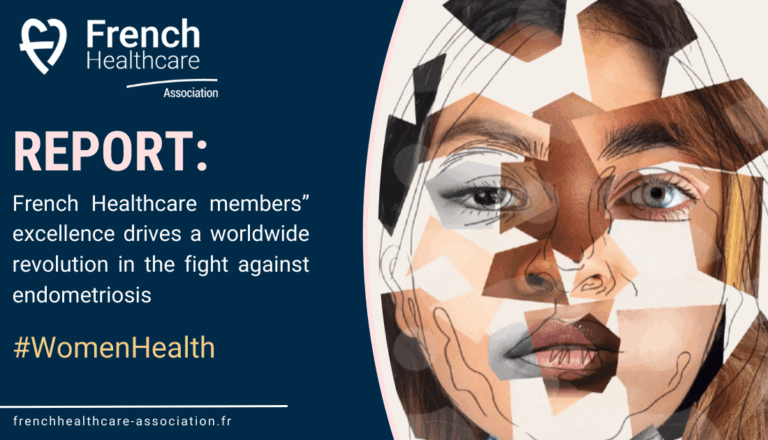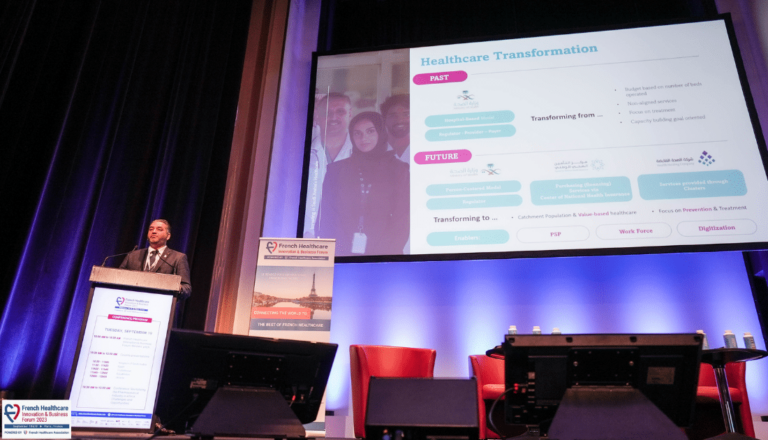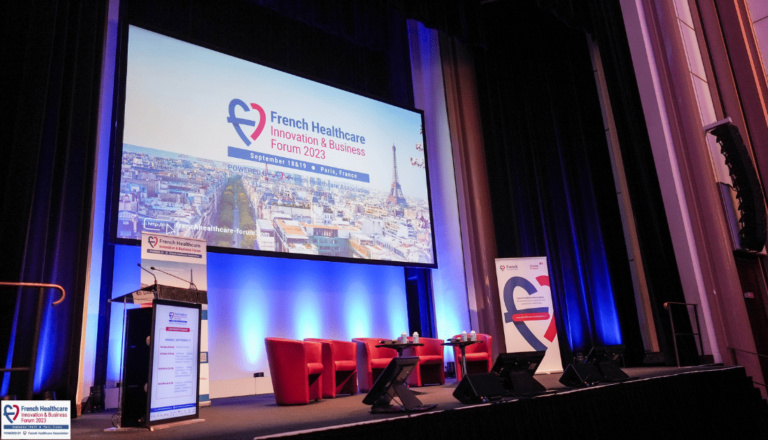Foreign Patients
France is well-positioned in the international healthcare market. The strategic objective is to increase the number of international patients coming to France and thus contribute to the influence of its healthcare system. Having been significantly destabilized by the Covid-19 health crisis, the market is now gradually returning to full growth.

Welcoming international patients: France is affirming its ambition and structuring its industry
The welcome extended to international patients represents a major challenge for France, which has undeniable advantages, including medical teams ranked among the best in the world, highly dynamic clinical research and access to state-of-the-art infrastructures in both public and private establishments. Trained to the highest possible level, teams of doctors and researchers are increasing the number of world firsts in many fields, such as the fight against cancer, cardiac pathologies and the treatment of rare diseases.
In line with a universal approach to healthcare, non-resident international patients benefit from the same conditions of treatment as offered to patients covered by the French social security system, with no priority of admission or preferential treatment, and with quotes provided in advance. The main reason they come to France for treatment is for chronic illnesses and serious pathologies, primarily cancer. Why do people travel for treatment? Among the reasons are better quality of care, access to a specific range of treatments and technologies, shorter treatment times and lower costs than in other countries, including for non-resident patients with no social security coverage (Insert 1).
Ethics and expertise
In 2015, the publication of the report by health economist Jean de Kervasdoué (at the request of the government) on the value of welcoming foreign patients showed that France was an important player in the international scene. Today, the industry is structured under the aegis of the French Healthcare Association, founded in 2017 to promote the excellence of French healthcare services internationally.
The first tool available to foreign patients is the “Coming to France for Treatment” brochure. Created by members of the French Healthcare Association with the support of public and private hospital federations, the Ministry for Europe and Foreign Affairs and Atout-France, it presents French medical excellence in four languages covering eight specialties, and provides information on the establishments that offer the most appropriate services for the treatment of foreign patients.
Another initiative of the French Healthcare Association, which is involved in a number of projects on this subject and has been mandated by the Strategic Industry Committee (or CSF) is the website myfrenchhospital.com. This site, which is constantly updated, describes the administrative aspects of care and provides information on healthcare establishments, so that patients can find the establishment best suited to their needs.
Lastly, the signing in May 2021 of the “French Hospital Quality” label, which guarantees quality services for foreign patients, and the drafting of a charter for medical concierge companies (Insert 2) complete this quality initiative for the sector. The first two facilities to be awarded this label are the Hôpital Saint-Joseph and the Hôpital Américain de Paris, with three others currently being assessed.
The roll-out of foreign patient reception services has been facilitated by support for medical concierge and hotel services, as well as by administrative streamlining and accelerated visa issuance (Insert 3).
The health crisis has clearly had an impact. According to a study carried out by French Healthcare, at the end of 2021 this global market was estimated at nearly $82 billion versus $105 billion in 2019. Whereas over the past 15 years, the number of patients traveling abroad for treatment has more than tripled, the pandemic clearly slowed this trend (23 million patients in 2019 versus 17 million in 2021).

The wide variety of products and services available and the healthcare establishments getting prepared: a few examples
With 3,089 sites in 2021 offering 408,245 beds and 72,789 places, France has a particularly rich range of healthcare services. These national healthcare services consist of public establishments (45%), private establishments of collective interest (22%) and private for-profit establishments (33%), and offer considerable diversity both in terms of specialties and care procedures.
Assistance Publique-Hôpitaux de Paris (AP-HP), the showpiece of French hospital medicine, has 40,000 foreign patient stays per year, out of a total of 8 million. Foreign patients are welcomed in the 12 hospital groups of the AP-HP, in particular in hepatology and certain neurological pathologies. The patient’s pathway is organized by a medical and administrative system specific to each hospital, with the assistance of an interpreting service. As with other French healthcare establishments, most patients come from the Gulf States, Eastern Europe, North Africa and Sub-Saharan Africa. In addition to the AP-HP, other French university hospitals have also developed activities receiving international patients. These patients benefit from the excellent service offered by the French public healthcare system.
Private-sector establishments are expanding the services they offer in order to provide a personalized, structured pathway, such as the Curie Institute. Access to more precise cancer diagnoses as a result of genomic cell sequencing, the search for the best therapeutic combination and treatment of complex or rare cancers such as sarcomas are just some of the reasons why 1,300 international patients a year request a remote medical opinion, a sample analysis or treatment from the Paris facility. A third of them are treated on site, i.e. 420 patients in 2019, for a stay costing an average of €25,000. Videos in six languages available on the hospital website’s homepage explain the hospital’s policy for welcoming international patients, and link to a dedicated web platform where patients can upload their files and securely send any documents required. Four co-ordinators process these requests and then forward the file to the doctors for a medical opinion. An office in Shanghai is specifically dedicated to examining Chinese patient files. Adopted by the Board of Directors, the fee schedule is applied to all international patients, whether care is covered by the countries themselves (such as Kuwait, with which ties are strong) or by the patient directly. As in most hospitals that receive foreign patients, a 24-hour interpreting service (for 120 languages and dialects) is available throughout the patient’s stay.
The American Hospital in Paris is another example. The hospital has had an international outlook ever since it was founded, and foreign patients in particular have come to appreciate its expertise in the diagnosis and treatment of diseases of the digestive tract and liver, orthopedics, traumatology, interventional cardiology and cosmetic and reconstructive surgery. Before the pandemic, international patients of around 100 nationalities represented
30% of the number of stays, i.e. a total of 4,000 stays. The geographic origin of the patients remains quite diverse, with half being referred by a third-party payer (international insurance, private company or country authorities), and the other half coming on their own, particularly US citizens living in France. The principle of geographical proximity is an essential factor for people who choose this establishment, with patients also taking price and length of stay into account. A team of seven full-time staff, with on-call duty personnel to deal with emergencies, is dedicated to this activity.
At the Institut Gustave Roussy (IGR), the policy of receiving international patients has accelerated sharply over the last ten years as it has opened up to Gulf states. 1,800 international patients were treated in 2018 (+26% year-on-year). The IGR’s international department aims to optimize the quality of care provided to international patients by a dedicated medical and paramedical team, whilst at the same making their stay at the Institute as comfortable as possible.
Other structures are also well-known for their high level of international activity, such as the Hôpital Foch in Paris, the Hôpital Fondation Rothschild in Paris, the Centre Lacassagne in Nice, the Centre Léon Bérard in Lyon and the Groupe Hospitalier Paris Saint-Joseph.
Improving the medical attractiveness of French healthcare establishments has substantial and major benefits in terms of economic activity and job creation. For international patients, France offers the most effective treatment in terms of cost, expertise and quality of reception. This virtuous circle, with its strong growth potential, is both encouraged and supported by the French Healthcare Association initiative.
Note: We would like to thank Pierre Anhoury, Director of International Relations at the Institut Curie, Florence Veber, Director of International Relations at AP-HP, Olivier Bosc, Vice-President of the American Hospital in Paris, in charge of development, Loïck Menvielle, Associate Professor of Marketing at EDHEC Business School, Emile Jockey, head of healthcare at the Economic Diplomacy Division (Ministry of Foreign Affairs), Jean-François Gendron, former President of the French Healthcare Association, Johanna Lerfel,, General Delegate of the French Healthcare Association and all the members of the association for their expertise and for sharing their experience.Association, Johanna Lerfel, déléguée générale de French Healthcare Association et l’ensemble des membres de l’association pour leur expertise et leur partage d’expérience.
Insert 1
Competitive care costs
The prices of treatments in France are four times lower than those in the United States for comparable quality.
Source: France Stratégie, 2015
Insert 2
A label and a charter to develop and regulate the activity
The “French Hospital Quality” label, intended for healthcare establishments that are members of the French Healthcare Association and treat foreign patients, is implemented in partnership with Afnor. This label, created in 2021, guarantees foreign patients high quality services, in line with ten quality criteria covering the following themes:
- A team dedicated to welcoming international patients
- A dedicated web space
- Application processing procedures for international patients
- Accurate and transparent quotes
- A dedicated reception upon patient arrival
- Services made available to patients during their stay
- Communication with the patient and translation of any medical information
- Patient discharge organization and reporting
- Dealing with complaints and claims
- Satisfaction questionnaire
A best practice charter has been signed by nine medical concierge companies (members of French Healthcare) which help organize international patient travel. Rapid patient referrals, help in creating records, transparency of costs and services, clear contracts, confidentiality and ethics are the key elements of this charter.
Insert 3
A short-stay visa for health reasons
To enter France for treatment, an applicant must obtain a visa for this purpose from the appropriate French consulate in their country of residence. Visas are not required for nationals of the European Union and certain other countries (e.g. USA and UAE), if the visit does not exceed 90 days within a 180-day period. A visa application is usually acted upon within 2 to 10 days. In the case of a proven medical emergency, the French consulate can allow an accelerated procedure. In any case, obtaining a visa does not exempt the applicant from the obligation of taking out private insurance to cover any medical and hospital expenses.





